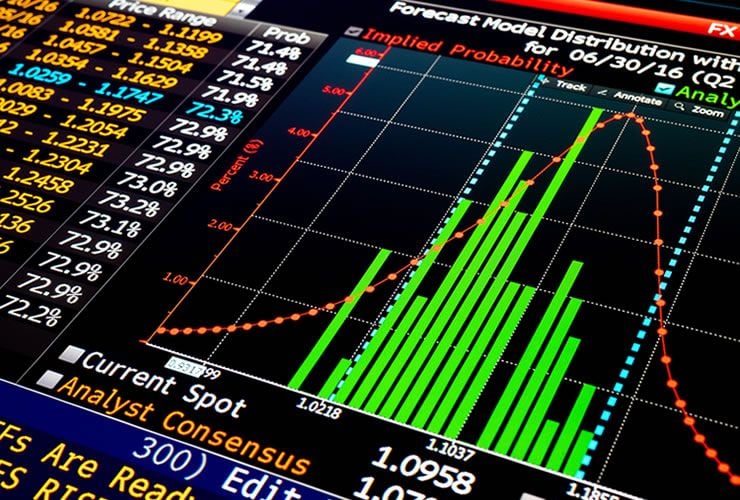UniCredit Warn on Bank of England Rate Cut on Brexit
Unicredit's Chief UK Economist, Daniel Vernazza has warned that UK interest rates could fall to zero.

The commonly held view is that if the UK leaves the EU the pound will plummet in value, with estimates ranging from a 15-30% devaluation.
One of the by-products of having a substantially cheaper currency will be that foreign imported goods will become more expensive - Japanese electronics, German cars, Swiss watches, for example.
This will push up prices because the UK imports far more goods than it manufactures itself.
Higher prices will mean higher inflation, which will probably lead to the Bank of England (BOE) increasing interest rates in order to try to bring inflation down.
Hhowever, according to the UK Chief Economist at UniCredit Bank, Daniel Vernazza, the opposite is more likely to happen:
"Given the current very low rate of headline inflation and muted inflation expectations, we expect the BoE would cut interest rates towards zero fairly swiftly in the event of a Brexit in order to support economic activity."
The Bank of England have said that in the event of the UK leaving the EU they would be faced with a difficult dilemma, since the prolonged period of uncertainty following the Brexit would slow growth - calling for lower interest rates to stimulate the economy; whilst the sudden fall in the value of sterling would cause inflation to rise, requiring higher interest rates too cool spending.
"This combination of influences on demand, supply and the exchange rate could lead to a materially lower path for growth and a notably higher path for inflation than in the central projections set out in the May Inflation Report. In such circumstances, the MPC would face a trade-off between stabilising inflation on the one hand and output and employment on the other."
According to Vernazza, however, low growth would be the BOE's priority over bringing down inflation.
November rate hike if Remain wins
In the event that the UK votes to stay in the EU, the outcome will mean current economic strength continues its upward trajectory, and the Bank of England raising interest by as soon as November:
"If the UK votes to remain in the EU, as we expect, then we continue to see the first hike in the Bank Rate in November this year, based on the underlying domestic economic strength and little - if any - remaining spare capacity."
Current late surge for the 'Leave' campaign could be misleading
According to an analysis carried out by broker TD Securities the current late surge in the 'Leave' campaigns' share of the vote conforms to a common pattern in referenda, whereby the non-status quo vote improves in the 1-3 weeks prior to the referendum but that the status quo always somehow wins anyway, as people vote more conservatively on the day:
"In the 1975, 1979, 1997 (x2), 2011, and 2014 referendums in the UK, support for the "non-status quo" side surged about 1 to 3 weeks prior to the vote, but the status quo prevailed as voters decided to take the less risky option."
If this pattern is in fact predictive then 'Remain' may still have a good chance of winning, as indeed still shown by betting averages offered by bookmakers, who are normally correct.



